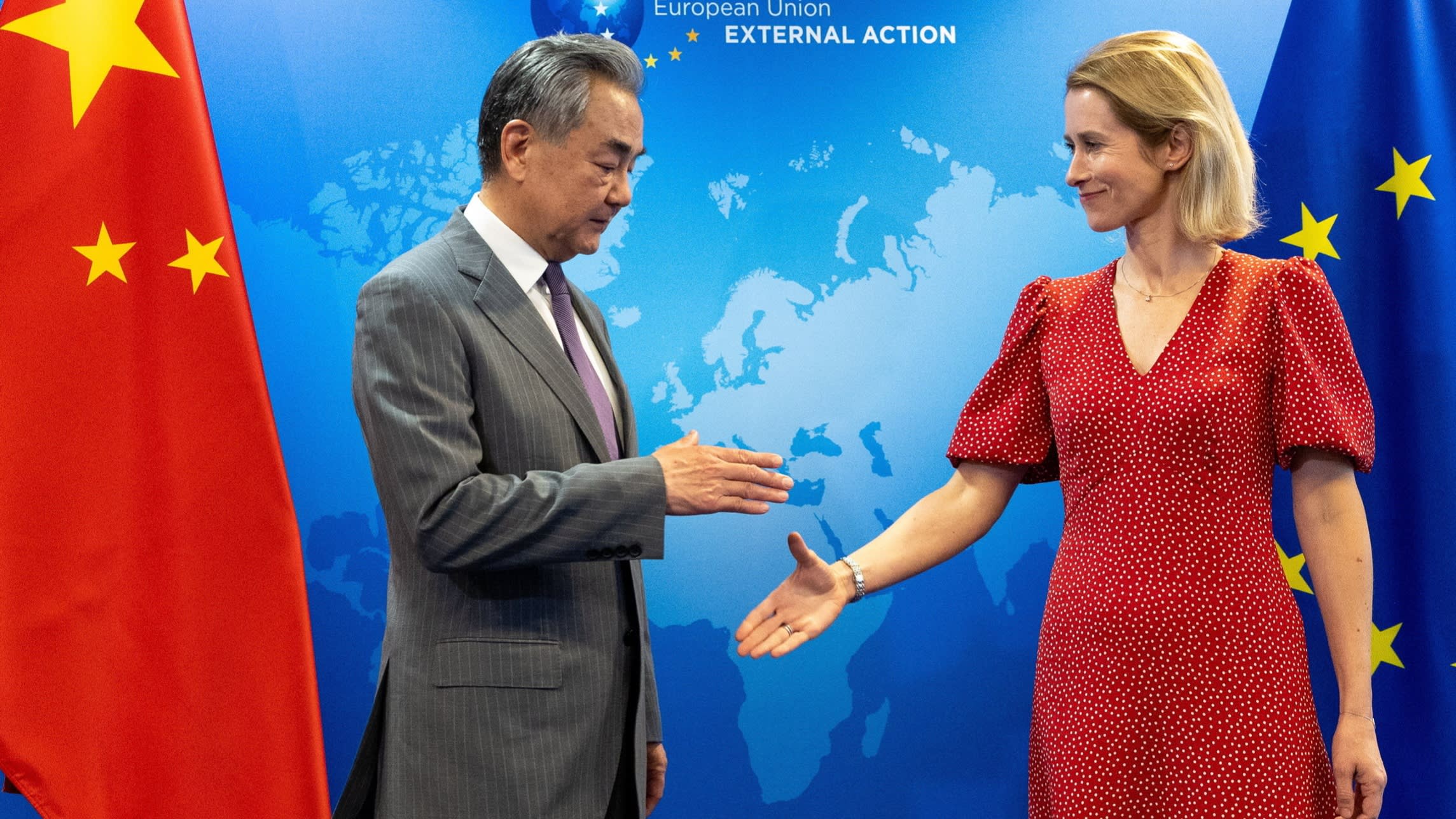
Unlock the White House Watch newsletter for free
Your guide to what Trump’s second term means for Washington, business and the world
The writer is director of the Carnegie Russia Eurasia Center in Berlin
When EU leaders meet Chinese President Xi Jinping this week, they intend to make his support for Russia a pivotal topic. “China is de facto enabling Russia’s war economy. We cannot accept this . . . How China continues to interact with Putin’s war, will be a determining factor for EU-China relations going forward,” European Commission president Ursula von der Leyen said on July 8. She hopes to put pressure on Beijing to distance itself from Russia’s war in Ukraine and thus force Moscow to negotiate with Kyiv in good faith. The problem is that for more than three years, this approach hasn’t worked — and nothing suggests it will now.
Chinese Foreign Minister Wang Yi recently told EU officials that Beijing doesn’t want to see Russia lose in Ukraine. That should come as no surprise; it’s not in China’s interests to see its giant nuclear-armed neighbour destabilised, which could be the result of defeat. It also doesn’t want to see the emergence of a liberal Russia that could turn away from its partnership with Beijing. This is why western attempts to pressure China to simply abandon Putin, without outlining an end to the war that would ensure regime continuity in Russia, have yielded no results.
Instead of taking China’s concerns into account, Europe has maintained a maximalist position. Its publicly declared goals envisage Ukraine’s return to its 1991 borders and the trial of Russian war criminals, including its most senior leaders — which hardly signals to Beijing that the EU is serious about a negotiated resolution that the Kremlin could live with.
Moreover, China believes that even if it did put pressure on the Kremlin, it would get no material incentives from the west in exchange. The EU’s de-risking strategy, driven by genuine concerns about overdependency on China, will not go away, and nor will US restrictions aimed at stifling Beijing’s technological ambitions as the AI race heats up. Fierce western criticism of Beijing’s support for Moscow has been accompanied by a more muted reaction to India dramatically increasing its purchases of Russian oil and thus providing a lifeline for the Russian wartime economy — prompting China to conclude that Europe and America are hypocritical.
In the fourth year of the war, any hopes that Russia could be defeated outright are long gone. Western goals are more modest: ensuring that Ukraine survives as an independent state. Beijing isn’t opposed to that, but with Putin refusing to back down, a mercurial Donald Trump in the White House, and Europe showing no signs of going soft on China economically, Beijing sees no incentive to change course. Moreover, it has a vital interest in strengthening a partnership with Russia that’s increasingly on China’s terms. Beijing is grooming Moscow as a long-term junior partner, and unlike the west, is preparing for a post-Putin Russia by cultivating ties to all the players who may one day shape the Kremlin’s trajectory.
China isn’t very impressed by the coercive tools that Europe is trying to deploy, such as the most recent sanctions. Beijing has demonstrated its ability to create adaptable infrastructure designed to support Russia. New EU restrictions against two regional banks will only cement their role as the Chinese government’s specialised tools for trade with Moscow. China has also shown it can retaliate effectively, and its ability to leverage western dependency on critical minerals has only boosted Beijing’s confidence. China could also go after the supply chains of Ukrainian drone manufacturers, which heavily rely on Chinese components.
China won’t dump Russia any time soon, and making frustration over that reality one of the organising principles of Europe’s China policy won’t help — even if Brussels continues to call out Beijing for moralistic reasons. As for supporting Ukraine, beyond the measures agreed at the recent Nato summit, the EU could use its leverage to maintain uninterrupted Ukrainian access to Chinese drone components while doubling down on addressing this critical vulnerability through indigenous manufacturing and partnership with the US. Finally, channels of communication with China on the war in Ukraine should remain open and pragmatic.
Since the Russia-Ukraine war began in 2022, a rare bright spot in multilateral diplomacy was Beijing’s role in making clear to Putin that the use of nuclear weapons in Ukraine would have dire consequences for Russia — including in its relations with China. If the war escalates once more, working with China may be instrumental in restraining the Kremlin. Europe should not jeopardise that opportunity.

